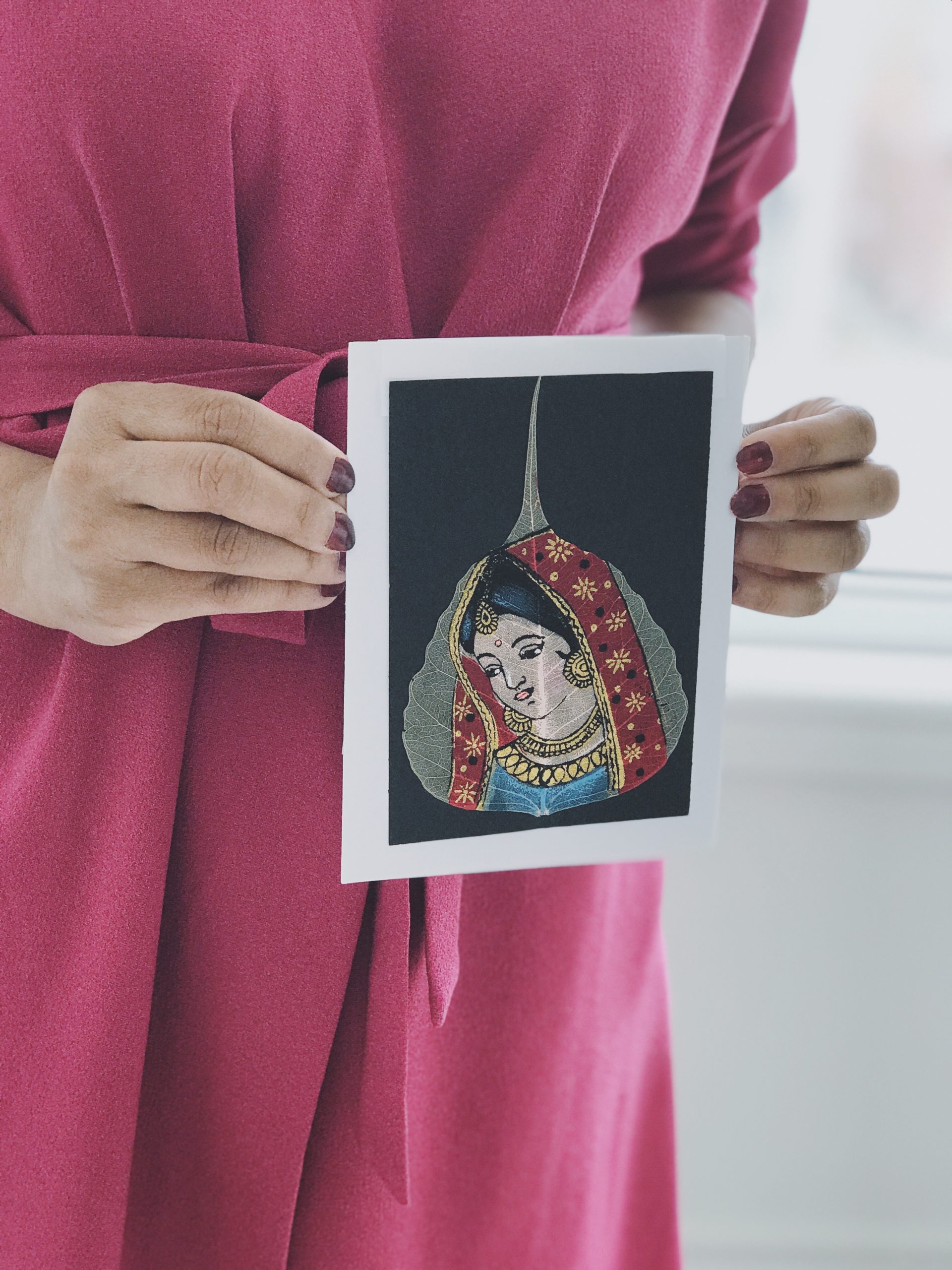Periods. I talk about them constantly now, but that wasn’t always the case. My first period came as a complete surprise to me at the age of 13. I thought there was something very wrong with me.

No one had ever told me this would happen and I had learnt nothing at school! I was living in Karachi where the taboo around menstruation persists more than in many other parts of the world.
I shared this at a public speaking event recently and someone asked me incredulously, “Even your mum didn’t prepare you?”
She didn’t, but it wasn’t her fault. The mentality around periods and sex have been persistent for generations. She was brought up in an environment and culture that wasn’t conducive to open conversations about menstruation. Mom simply didn’t know any better.
I know this story isn’t unique to me – I’ve heard lots of similar ones.
This taboo has been lifting slowly thanks to the work of many menstruators (and some non-menstruators) all across the world and because of the internet, but it’s a hard one to shake off. It’s difficult to change the habit of talking about periods in hushed voices, hiding tampons in sleeves and averting your gaze at the cash register while paying for hygiene products. Periods are portrayed as a nuisance, painful and the cause of feeling like you’re on an emotional rollercoaster.
Not all cultures view menstruation negatively. There are some that find your flow empowering, where women can take the time to tap into their inner powers. Other cultures are ambivalent to menstruation too. But the mainstream view is that menstruation is problematic often leaving women feeling like second-class citizens.
I believe that the narrative we’re exposed to growing up, has to do with the state of our menstrual education (or lack thereof) as well as the misinformation around menstrual cycles.
Understanding Your Cycle
Your menstrual cycle is divided into the follicular phase and luteal phase with day one being your period. If you’re reaching for multiple painkillers to deal with menstrual cramps, dealing with a heavy flow, large clots or missing out on work or school, then it’s time to seek help.
Your menstrual bleed lasts anywhere from three to seven days. As this is happening, your follicles, the sacs that contain immature eggs, begin to grow under the influence of follicle stimulating hormone.
As your follicles grow, estrogen starts to rise and you typically feel pretty good at this time as the lethargy of your period flow starts lifting.
Then, as you approach the middle of your cycle, one follicle ruptures releasing an egg. This is ovulation, usually accompanied by egg-white cervical mucus. You may get a bit of pain in your side and perhaps a slight dip in energy on ovulation day.
After the egg is released, you enter the luteal phase lasting 10 to 12 days. Your hormone levels drop leaving you with a bit of water retention, mood changes and a bit of fatigue. Anxiety, premenstrual spotting, acne, extreme bloating, migraines and insomnia are reasons to book a doctor’s appointment.
All of this ends with your period when you shed the built-up lining.
The Importance of your Menstruation Cycle
Your menstrual cycle is your fifth vital sign. It tells you that your biochemistry, your neurochemistry and all of your body’s processes are integrating with one another. You can’t have a punctual, peaceful and healthy period without the ebb and flow in your hormones throughout your whole cycle. To have a period, you need to ovulate. If you’re not ovulating because of a metabolic reason or because you’re on most types of oral contraceptive pills, your bleed isn’t technically a period.
Ovulation is important whether or not you want to get pregnant. The hormonal changes accompanying ovulatory cycles support our metabolism and bone density. They also decrease the risk of conditions like cancer and cardiovascular disease. And it’s not just your current menstrual status impacting your risk factors, but also your genetics, family history, nutrition, lifestyle, stress levels, pregnancy history and past menstrual and medical history.
I have a history of polycystic ovarian syndrome. This means I’ve experienced irregular cycles, unwanted hair growth, cystic acne and insulin resistance. PCOS runs in my family. The condition is also impacted significantly by stress, nutrition, movement and vitamin D levels. This can lead to an increased risk of miscarriage, diabetes, thyroid disorders and cardiovascular disease. As I go through life, this was all important for me to know.
Listening to your Body
A lot of us haven’t really been taught or encouraged to pay attention to our bodies. The lack of menstrual education and normalization of pain and emotional volatility has been a disservice to our bodies, our health and our lives. It also disallows us to receive the healthcare that we need and deserve.
Your menstrual cycle is a synchronized dance with a lot of different participants. Hormones have a real impact on your metabolism, mood, digestion, energy levels and more. Slight fluctuations in the way you feel, experience things and behave are actually quite normal.
We’ve been brought up to believe we should feel the same way day in and day out, especially in today’s world where we wear busyness like a badge. The reality is our hormones ebb and flow. This means that our energy, mood, metabolism and mental clarity will fluctuate too.
Your Menstruation Cycle is Kind of Like the Seasons
- Menstruation is like wintertime when energy is slightly lower because of blood loss and slight drops in your hormones. This is the time to rest and recover.
- The follicular phase is like the spring when energy and digestion improve as hormone levels begin to rise.
- Ovulation is like summer when motivation and libido are high, making it a great time to take action in your life.
- The luteal phase, especially in its late stages, is like the fall when energy starts to go down, mood changes are common as winter approaches and you may feel like you want to retreat inwards a bit more as your hormone levels drop.
Everyone experiences menstruation differently. Tracking your cycles, your symptoms and how you feel throughout the month is a great way to figure out what’s happening in your body. Share this information with your healthcare providers to optimize your hormones and cycles with a plan tailored to you.




